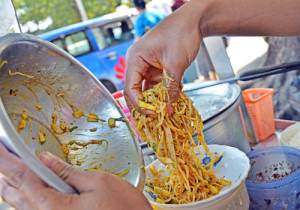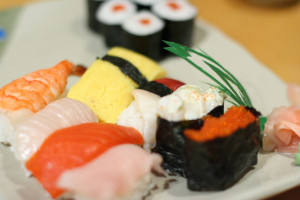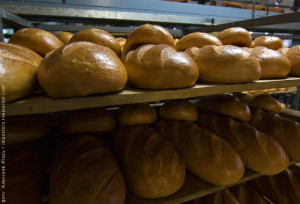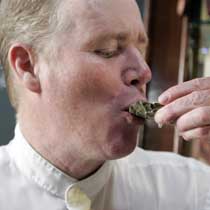According to new research, a lot of the street food in Yangon, Myanmar (below, exactly as shown) contains Staphylococcus aureus and Bacillus cereus. If not held at safe temperatures, the quick meals could be a particularly awesome place to create foodborne toxins.
The findings highlight the scale of the city’s food hygiene problem: More than one-third of the 150 samples collected were positive for either Staphylococcus aureas or Bacillus cereus, two common types of bacteria that can lead to food poisoning. Almost one-quarter contained dangerous levels of the bacteria, researchers found.
The results of the research were released at the 42nd Myanmar Health Research Congress, held at the Department of Medical Research (Lower Myanmar) from January 6 to 10.
Dr Thaung Hla, deputy director of the biological toxicology research division at the National Poison Control Centre, conducted the research with three colleagues. The aim was to pinpoint just how frequently dangerous organisms are found in roadside foods.
Thirty samples from each of the five downtown townships were collected and tested. Of the 150 samples, 52, or around 35 per cent, contained either Staphylococcus auras (sic -ben) or Bacillus cereus.
The lack of enforcement means it is generally a case of buyer beware. Ma Su Su from Bahan township said she tries to avoid eating street food because of the frequency with which it makes her fall ill. It is easy to see how bacteria could be transmitted through street food, she said, because vendors do not wear gloves and wash plates and utensils in dirty water.
The sub heading of the article is fun – especially considering the etiology of the pathogens:
New research has confirmed what many of us have already learned the hard way – that consuming Yangon’s street food can end in food poisoning, particularly for those who have not built up immunity to the many types of bacteria on offer.
Sounds like there’s a perception that the street food is nasty. Building up immunity to Bacillus cereus only works for some types of illnesses, the ones linked to a cyclic peptide toxin that causes vomit – it is preformed in temperature abused food. And acquired immunity is pretty unlikely for staph enterotoxin (also preformed in food).
 on Saturday, the city government said in a statement.
on Saturday, the city government said in a statement.








